Young Migrants Survive a Near-Death Experience Crossing War-Torn Yemen
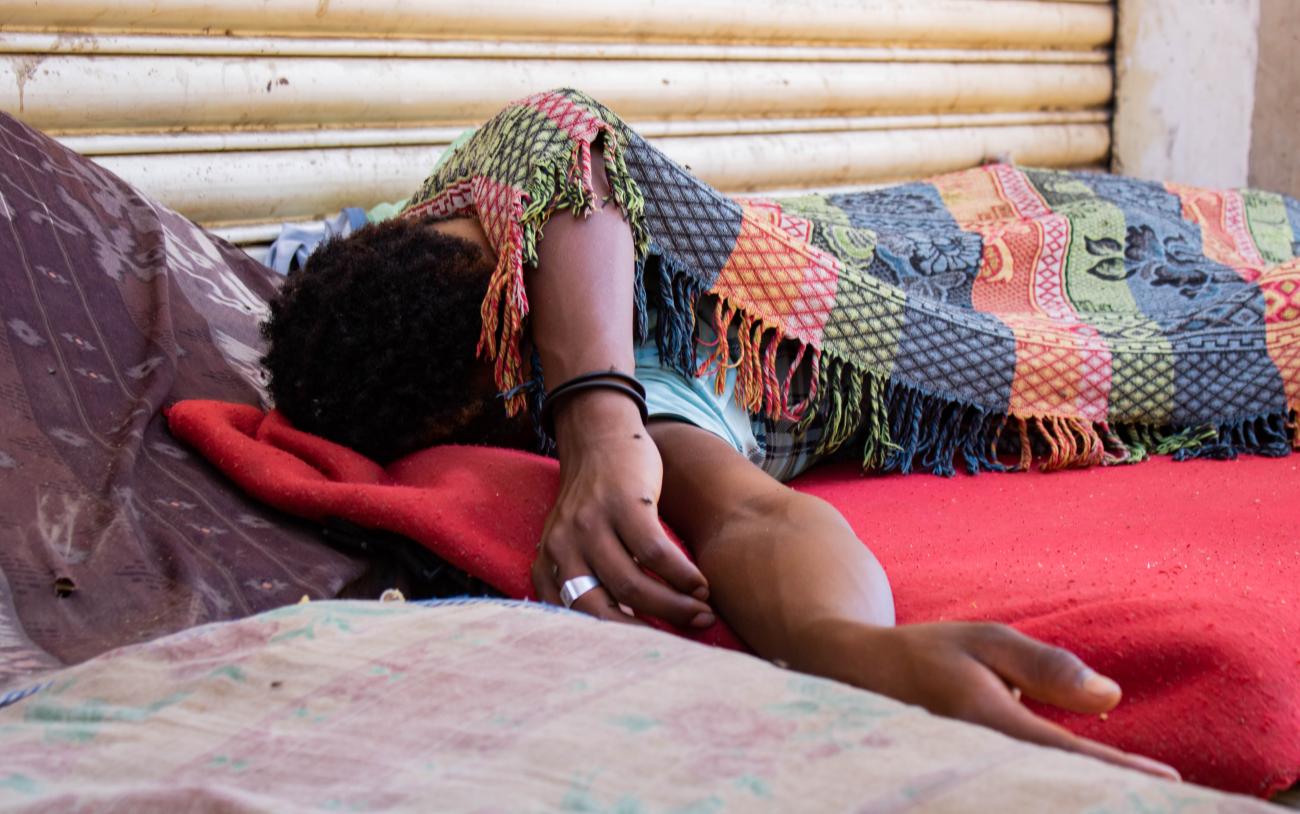
Sana’a – Exhausted, hungry, lost and scared. This is how most migrants feel arriving in Yemen.
I did not have any assistance. When I arrived in Yemen, I was sleeping on the sidewalk – frightened, starving and ill,” recalled Bilal Muhammad, an 18-year-old Ethiopian migrant who recently found himself stranded in the country.
Bilal is one of thousands of migrants whose dream of a new life opportunity in nearby Gulf countries was shattered by the conflict and COVID-19-related movement restrictions. He has become, along with 32,000 others, stranded in Yemen, living in extreme dire conditions.
Despite his young age, Bilal left his mother and three brothers back home in Ethiopia and decided to embark on the perilous route to Yemen, in a hope to find a good income source in the Kingdom of Saudi Arabia that would allow him to provide a better life for his family.
I travelled from Ethiopia to Djibouti, then crossed Yemen’s sea to Shabwah’s coast, moved to Aden governorate, then travelled on foot to Sa’dah governorate,” he said.
With the recent loosening of restrictions on international movements, migrant arrivals into Yemen have started to show a slow increase, although the overall numbers remain low compared to pre-pandemic years.
The International Organization for Migration (IOM) estimates that in 2019 over 138,000 migrants arrived in Yemen, while just over 37,500 came in 2020. Thus far in 2021, the Organization has recorded more than 11,500 migrant arrivals to the country.
Migrants who manage to arrive in Yemen continue to face significant barriers in accessing the humanitarian services and employment necessary to survive. The pandemic and persistent conflict have pushed them further into the shadows and left them reliant on smuggling networks to get by.
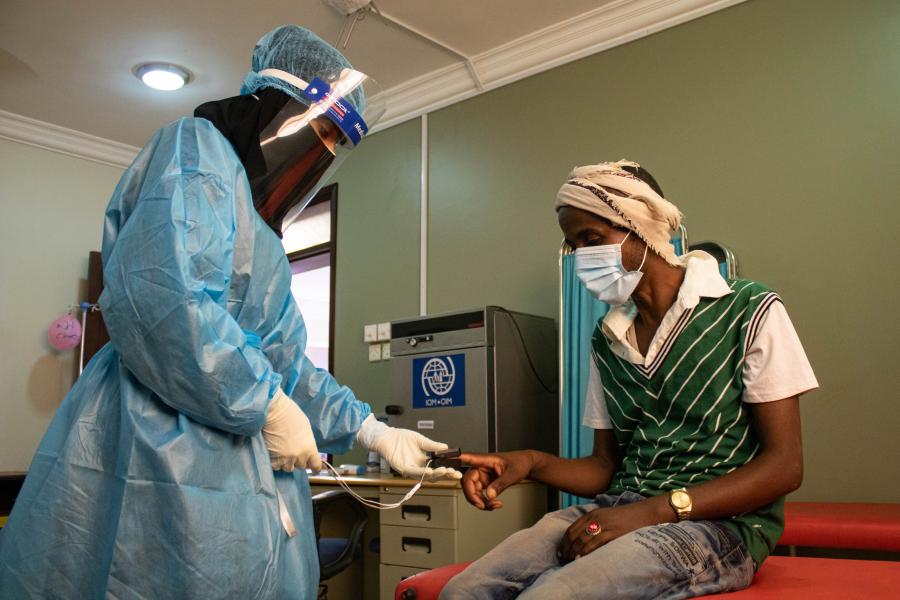
Most migrants who come from the Horn of Africa arrive to Yemen’s western coast – somewhere between Hajjah and Shabwah – before they attempt to make their way onward.
The smugglers then provide transportation to those migrants who can afford the journey, taking them to Aden. Migrants who do not have money usually travel for weeks on foot to reach the same destination.
Eager to cross the borders to KSA , they then take an extremely dangerous trip from Aden to Sa’dah. On the way, many migrants find themselves caught up amid armed clashes.
While on this same route trying to cross the border in Sa’dah, Bilal was attacked and suffered multiple injuries to his head and partial loss of consciousness.
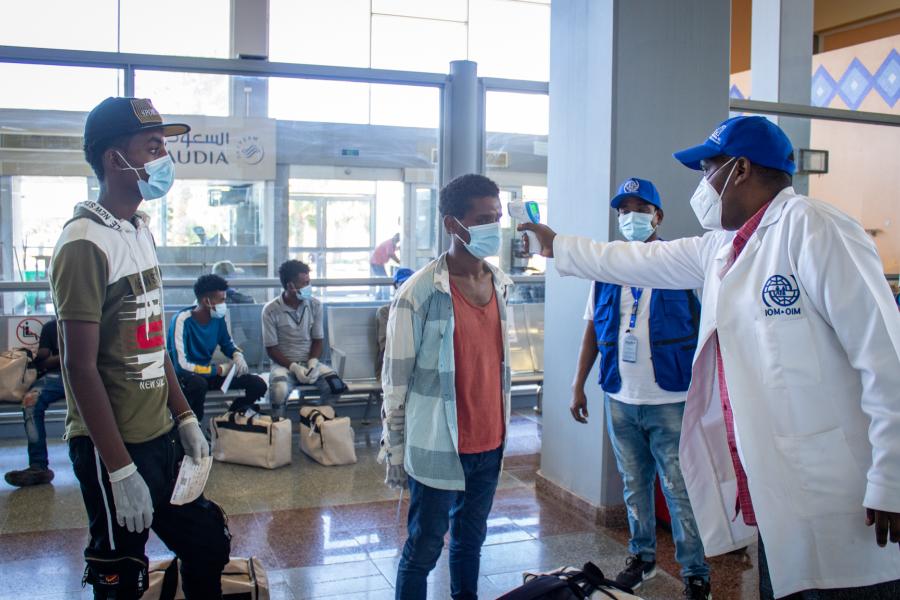
In the same violent incident, Yaseen Omar, a 27-year-old Ethiopian migrant who was travelling with Bilal to KSA, was also assaulted in Sa’dah.
He lost a lot of blood and fell unconscious after receiving multiple gunshots in his abdomen and pelvis. Yaseen was in desperate need of surgery to stop the internal bleeding.
Both Bilal and Yaseen were in life-threatening health conditions and needed to be transferred to Sana’a for advanced health care.
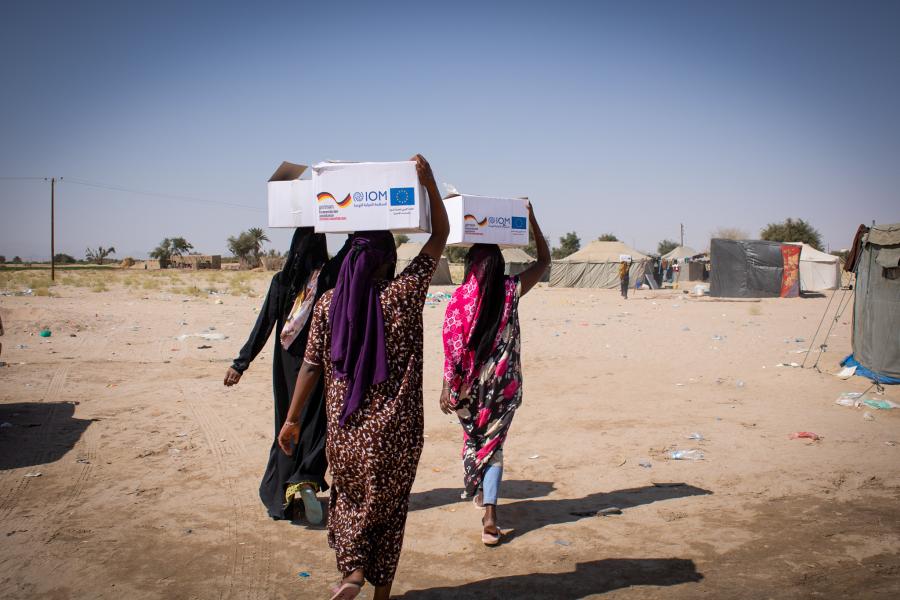
IOM collaborates with the Government of Germany to provide emergency and essential health services to vulnerable migrants in Yemen, including medicine and medical supplies. The Organization also refers moderate and severe medical cases to hospitals for further care.
When some of the Ethiopian community members brought Bilal to the IOM clinic in Sana’a, he was disorientated, agitated and dehydrated,” explained Dr. Raidan Al-Dahmashi, who is part of IOM’s Migration Health team in Sana’a.
We knew that he had to be referred immediately for urgent medical care,” he added.
Likewise, the IOM Migration Health team referred Yaseen for higher care as soon as the Ethiopian community brought him to IOM’s clinic in Sana’a due to his severe condition.
Bilal was admitted to Al Jomhori Hospital for intensive care, but it was more complicated for Yaseen, who was barely conscious and suffering from multiple pelvic fractures when he arrived at the hospital.
He was referred to the Emergency Department of another public hospital, Al-Thawra hospital, for better diagnosis, and later to a private hospital, Al-Ahli Modern hospital, where he underwent two significant operations and remained under intensive care for a month.
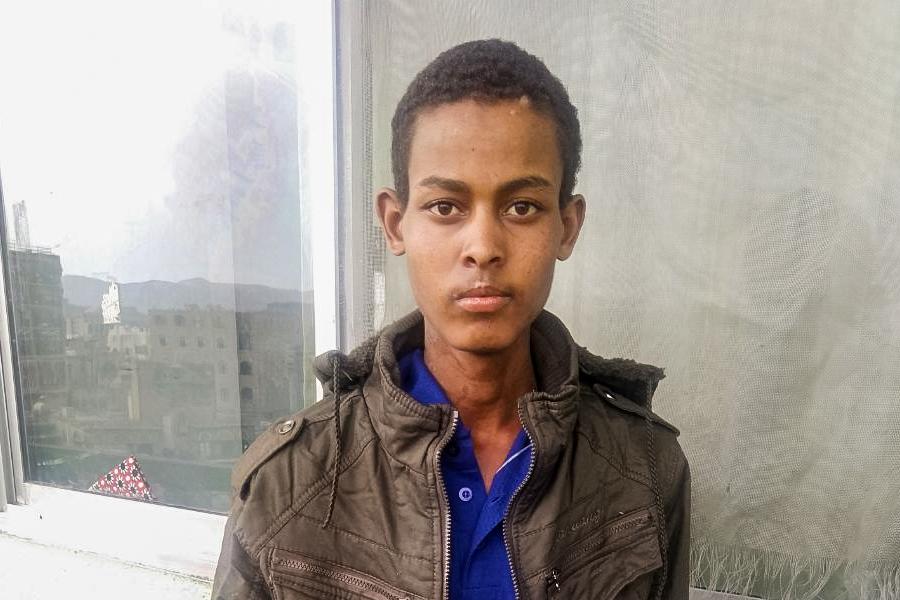
IOM supported both Bilal and Yaseen, who spent time in the intensive care unit, under close observation from medical staff and receiving medication, nutrition and mental health support for about a month.
After their recovery, they were sent to stay with a foster family, through IOM’s Foster Family Programme, who provided them with a safe place to live while they received further care and proper nutrition.
Now, Bilal and Yaseen wish to go back to their families and have registered to voluntarily return home through IOM’s Voluntary Humanitarian Return programme.
The Organization saved me and restored my hope that I will return to my country, my family and my friends,” said Bilal, feeling relieved that he regained his health.
IOM, with funding from the German Government, provided nearly 3,000 migrants with medical consultations, 3,700 health awareness sessions and 300 hospital referrals between January and May 2021.
Written by Mennatallah Homaid, IOM Yemen Communication Assistant



